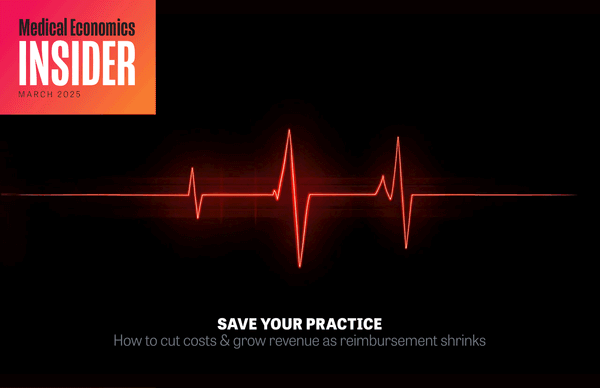
Practice Management
Latest News
CME Content


Primary care physicians (PCPs) accept fewer Medicare and Medicaid patients than specialists, reveals a new report, which also predicts an overall decline in acceptance rates of government insurance programs across the nation once the Affordable Care Act (ACA) is fully implemented.

One-third to one-half of several routine diagnostic tests were repeated on Medicare beneficiaries over a 3-year period, according to a new report.

The continued rollout of the Affordable Care Act is just one of the challenges on the table for physicians in 2013. Read about four others sure to be on your mind.

Medicare Part B was rated highest among payers by providers for overall satisfaction, according to the newest version of an annual study from MGMA-ACMPA.

If an employee cannot meet practice standards, you are able to terminate their employment.

Spear phishing is a new way that hackers obtain patient data. Learn how to protect your practice's records.

The biggest reason to adopt technology isn't that the government wants it. It's to keep up with what your patients want.

Len Nichols, PhD, talks about the biggest issues facing the healthcare system, the role of smaller practices in new models, and the timeline for when these new models will be deployed.

A recent survey indicates that the average American thinks that doctors should be paid less, to contain healthcare spending. Here's a way to reinforce your worth to your patients.

Being able to calculate the total cost of seeing a patient can help in negotiations with insurance companies. Learn how to figure out the cost.

These three principles may help you put in place a tax minimization plan.

2013 brings 186 new CPT codes, 148 deleted codes, and 263 revised codes. Here's what you need to know to get paid.

Chances are, you won't receive much notice if an auditor plans to visit. Keep these points in mind so you and your staff can quickly prepare.

Wondering what gadgets can help your practice? Here's a round-up of some of the latest products.

Asking the right questions about portfolio fundamentals could help you retire 3 years earlier.

It might be wise to have a plan to accelerate taxable income as well as one to defer income, given today's tax uncertainties.

Medical Economics readers discuss the hassle of pre-certification, advise new doctors to avoid primary care, talk about serving as a mentor, look at why physicians continue practicing, and argue that electronic health record systems should be rejected.

This month's question focuses on how superbills can ease outpatient procedure coding. Find out the answers to this pressing coding question.

Consolidation, cooperation, and planning for the worst are three strategies to consider implementing in light of economic uncertainties facing physicians.

Are you worried about how to pay your practice's overhead in the event of personal disability? There's insurance for such an event.

Six states appear to be on track for meeting all health insurance exchange deadlines.

A baby can give you a new outlook on life and the practice of medicine.

Insurance restrictions, barriers to care, and affordability problems for patients are making U.S. physicians more dissatisfied with their work that their peers in 10 other developed countries, according to a new report.

As more providers access patients' medical data on mobile devices, security concerns are increasing.


